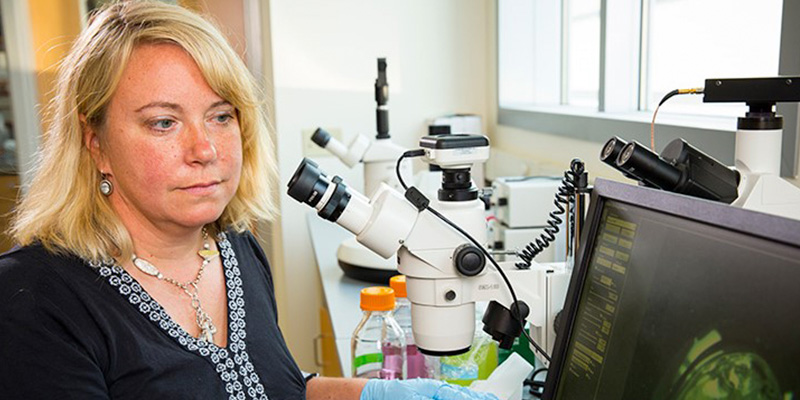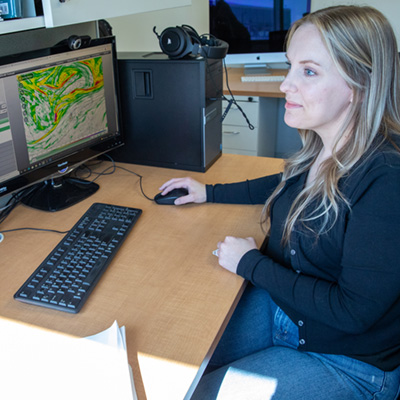Research
Our faculty are internationally known for their work in areas such as freshwater contaminants, biological pollutants, fisheries, invasive species, aquaculture, observation technology, climate variability, weather prediction, and water policy.
Our research teams include scientists, economists and legal experts who are advancing fundamental and strategic science and training the next generation of freshwater, climate, and weather professionals. Their work informs policy, improves management, and promotes the health and sustainability of the Earth and its ecosystems worldwide.
Investment in our research includes funding from the National Science Foundation, National Oceanic and Atmospheric Administration, National Institutes of Health, U.S. Department of Agriculture, U.S. Department of Energy, state of Wisconsin and local government, as well as corporate partners, foundations and private donors.
Our researchers and students collaborate with on-site partners, and our building houses offices for the Wisconsin Department of Natural Resources, U.S. Geological Survey, Wisconsin Sea Grant, U.S. Environmental Protection Agency, U.S. Department of Agriculture, Milwaukee Riverkeeper, Southeast Wisconsin Watershed Trust, Freshwater Collaborative of Wisconsin and Milwaukee’s Harbor District.
Research Impact
- Milwaukee Magazine Q&A with McLellanMilwaukee Magazine spoke with Dr. Sandra McLellan, Distinguished Professor at UWM School of Freshwater Sciences about the Wastewater Surveillance Program and their work during the RNC. Read the Full Story
- McLellan Interviewed for WUWM Story on Tracking Sewage During RNCThe WUWM 89.7 FM story by Sam Woods describes how the Dr. Sandra McLellan and her Lab at UW-Milwaukee School of Freshwater Sciences along with the Wisconsin State Lab of Hygiene are working to measure the microbes in wastewater, looking at how the increase in the number of people in Milwaukee during the RNC could impact …
- Wind Gusts are the Topic of New Publication in Weather and Forecasting JournalProfessor Jon Kahl, Undergraduate Kacper Zaprzalka, and Graduate student Danica Brezovar have published a new paper in Weather and Forecasting (WAF), a journal of the American Meteorological Society. The paper is titled: Investigating the potential of using mixdown altitudes to forecast peak wind gusts, by Jonathan D. W. Kahl, Kacper J. Zaprzalka, Danica S. Brezovar, …
We’re committed to advancing key research priorities
Explore freshwater systems and develop methods for their preservation and management. Study the impacts of climate change, human activity, and invasive species on the Great Lakes and Earth’s ecosystems worldwide. Improve water safety through cutting-edge research. Track the presence and sources of pathogens and determine the impacts of contaminants on human and ecosystem health. Form collaborations among scientists, engineers, and industry.
Predict weather and climate and their impacts to society. Manage, replace and restore the Great Lakes’ commercial and recreational fisheries. Drive new technologies in water research and management and fisheries management and urban aquaculture. Advance understanding of atmospheric processes on local to global scales. Link science to action and generate transformational policies from great science.



